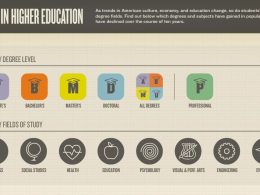Introduction
In the digital age, social media platforms serve as bustling hubs of interaction, information dissemination, and community building. However, alongside their benefits, they present a myriad of ethical considerations regarding social responsibility. From privacy concerns to the spread of misinformation, navigating this landscape requires a deep understanding of the implications of our digital actions. This article delves into the ethical dimensions of social responsibility in the digital realm, offering insights and strategies for fostering a more conscientious online presence.
Understanding Social Responsibility in the Digital Age

In the digital realm, social responsibility encompasses our duty to act ethically and considerately in online interactions. It involves promoting positive engagement, respecting others’ rights, and contributing to a healthy digital ecosystem.
The Evolution of Social Media Platforms
Social media platforms have undergone a significant evolution, transforming from simple communication tools to powerful influencers of public discourse and opinion. Understanding their evolution is crucial for comprehending contemporary ethical challenges.
From Networking to Influence
Social media platforms initially emerged as networking tools, facilitating connections between individuals and communities. However, they have since evolved into platforms with immense influence, shaping public opinion and driving social change.
Ethical Considerations on Social Media Platforms
Power Keyword: Privacy remains a cornerstone of ethical considerations on social media platforms. Users must grapple with issues of data security, surveillance, and the commodification of personal information.
Combating Misinformation

Power Keyword: Combating the proliferation of misinformation poses a significant ethical challenge on social media platforms. From fake news to manipulated content, discerning truth from falsehood is increasingly difficult in the digital age.
Promoting Digital Citizenship
Power Keyword: Promoting digital citizenship involves fostering responsible online behavior, critical thinking skills, and digital literacy. Encouraging users to engage mindfully and respectfully contributes to a healthier digital ecosystem.
Navigating Ethical Dilemmas
Balancing Freedom of Expression and Responsibility
Power Keyword: Balancing finding the equilibrium between freedom of expression and social responsibility is a central ethical dilemma. While users should have the liberty to express themselves, it must not come at the expense of harm or misinformation.
Enhancing Platform Accountability
Power Keyword: Enhancing Social media platforms bear a responsibility to enhance accountability measures, including robust content moderation, transparent algorithms, and user empowerment tools.
Fostering Digital Empathy
Power Keyword: Fostering digital empathy involves cultivating understanding, compassion, and respect in online interactions. Empathetic engagement can mitigate the spread of toxicity and enhance digital citizenship.
Social Responsibility in the Digital Age: Ethical Considerations on Social Media Platforms

Navigating the ethical landscape of social media platforms requires a concerted effort from users, platforms, and policymakers alike. By prioritizing transparency, accountability, and digital empathy, we can foster a more responsible and ethical digital environment for all.
Conclusion
In conclusion, social responsibility in the digital age encompasses a wide array of ethical considerations on social media platforms. By prioritizing transparency, accountability, and empathy, we can foster a digital environment that upholds ethical standards and promotes positive engagement. Remember, each digital interaction carries weight – let’s strive to make our online footprint a positive one.
____________________________________________________________
FAQs
What role do social media platform play in promoting social responsibility?
Social media platform serve as influential conduits for promoting social responsibility by facilitating dialogue, activism, and community engagement.
How can individuals protect their privacy on social media platform?
Individuals can safeguard their privacy by adjusting privacy settings, being mindful of the information they share, and staying informed about platform policies.
What are the consequences of spreading misinformation on social media?
Spreading misinformation can have far-reaching consequences, including eroding trust, inciting panic, and perpetuating harmful stereotypes.
How can social media platform combat the spread of fake news?
Social media platform can combat the spread of fake news through algorithmic adjustments, fact-checking initiatives, and user education campaigns.
What measures can platform take to enhance user accountability?
Platform can enhance user accountability by implementing transparent content moderation policies, empowering users to report violations, and fostering a culture of digital responsibility.
How does fostering digital empathy contribute to a healthier online community?
Fostering digital empathy cultivates understanding, compassion, and respect, fostering a culture of constructive dialogue and mutual support.










